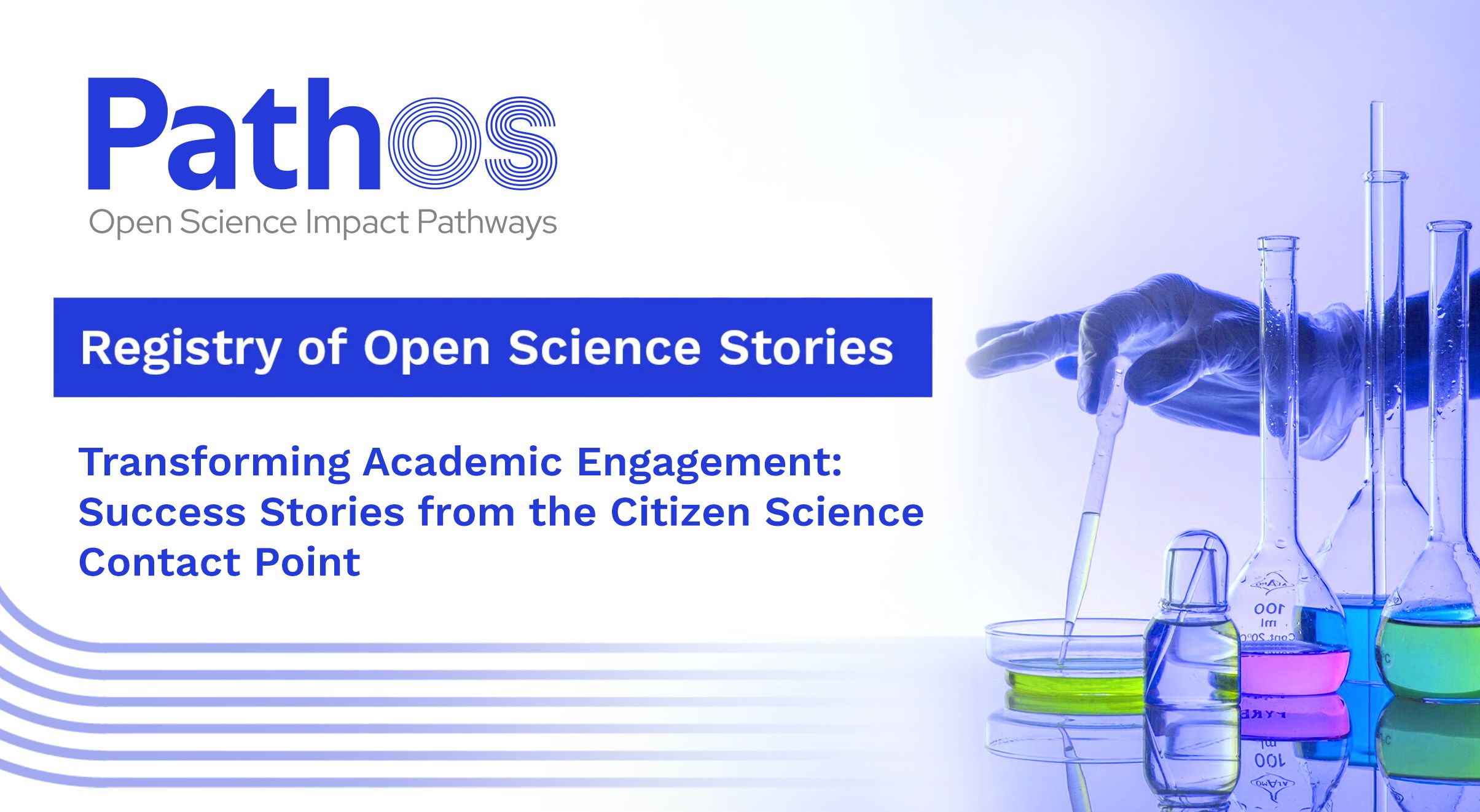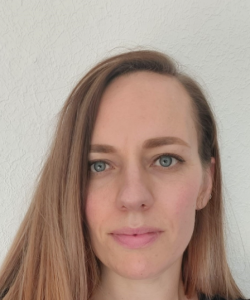Transforming Academic Engagement: Success Stories from the Citizen Science Contact Point

Within PathOS we are collecting stories on how Open Science (Open Access to publications, Open/FAIR data and software, collaborations with citizens) has made a positive or negative impact. Our ultimate aim is to highlight stories of Open Science practices and how these are linked to impactful outcomes. In this way, we hope to foster a learning experience and to inspire others to follow. Join us and read the first Open Science stories!
Could you briefly introduce yourself and what your Open Science story is about, including its time (e.g. year range) and location?
I am Floor Keersmaekers, the coordinator of the Citizen Science Contact Point (CSCP) at Vrije Universiteit Brussel (VUB), Belgium. We launched the center in 2022 to promote and support civil science participation at the university. The CSCP is part of Research Outreach & Communication (ROC), a department within the Vice-Rectorate of Research. We support the research community at VUB in all things citizen science: through 1-to-1 consultations and project support, training, tools and resources, networking opportunities.

We hadn’t immediately expected the Citizen Science Starter Kit to be such a success, but it appeared to fill a gap, addressing the need for a guide specifically for researchers, containing tools (templates and checklists) that lend themselves to immediate application.
What was the context or background in which this Open Science practice was used? What were the goals or expected outcomes?
The VUB has a long tradition of society-oriented research. When Caroline Pauwels became rector, the VUB started to profile itself even more strongly as an open, engaged, and city-oriented university. Combined with the growing societal attention for citizen science and the expertise we had built up within our cell by collaborating on projects such as Eye for Diabetes and Bugs 2 the Rescue, this ensured that citizen science occupied an important place in the university's research policy plan. Our Research Council followed the recommendation in LERU’s 2016 paper to ‘create a single and visible point of contact for citizen science within the institution, to advise and support scientists and ensure liaison with national and regional citizen science associations.'
Another important catalyst was our participation in the EUTOPIA-TRAIN project (2021-2023). With VUB, we are part of the EUTOPIA alliance of European universities. In TRAIN’s Open Science work package, we were responsible for the tasks, milestones and deliverables related to citizen science.
What was your role or relationship to this Open Science practice? Were you a direct participant, an observer, or something else?
I had the pleasure of preparing for the launch of the CSCP, supported by experts from inside and outside our university, and together with a small team at ROC. Since the launch I try to make sure that we reach all our operational and strategic goals according to the timeline we set ourselves in advance.
How was this Open Science practice implemented, to your knowledge? Who were the key actors involved?
As the launch of the CSCP was one of the KPI’s in VUB’s research policy plans, we had the support of the Research Council and our Vice Rector from the start. One of our citizen science experts, Carina Veeckman, conducted desk research for us into existing initiatives evolving around the support of citizen science in an academic context. We wanted to learn from inspiring examples and good practices. Additionally, a survey conducted in the EUTOPIA TRAIN project allowed for us to gain insight into our researchers’ interests and needs. Last but not least, we held three co-creation workshops involving management and supporting staff from VUB's Research and TechTransfer departments, members of our research community, and members of ECOOM and Scivil. These workshops helped us to set quality criteria for citizen science at our university, lay the foundations for future collaborations (workflows) and determine the CSCP’s main tasks and activities using the BESPOC model as a reference.
Were there any quantifiable outcomes or measurable successes linked to this practice? What metrics or indicators were used to evaluate these outcomes, if any?
The Citizen Science Contact Point was actively involved in the Research Council's 2022 call for citizen science projects and currently supervises and supports the awarded projects. Our university invested 1.2 million euros in this call! We also developed EUTOPIA TRAIN's Citizen Science Starter Kit and will continue to promote and share the kit through several internal and external channels and workshops. We launched our community of practice and provided peer learning sessions three times per semester, about every six weeks. The outcomes of these ‘Citizen Science Clinics’ are gathered in this mural (click ‘View as a visitor’ twice to enter). Through active follow-up of citizen science projects at VUB, we aim to uphold the VUB quality critera for citizen science. We also developed a researchers training in citizen science as part of ROC’s training program, and hosted two webinars together with UNICA: ‘How to engage citizens in your research?’ and ‘Successful strategies in applying for citizen science funding’.
What impacts, both expected and unexpected, did this practice have? Were there any surprising developments or results?
We hadn’t immediately expected the Citizen Science Starter Kit to be such a success, but it appeared to fill a gap, addressing the need for a guide specifically for researchers, containing tools (templates and checklists) that lend themselves to immediate application.
What challenges were associated with this practice, from your perspective? What lessons can be drawn from its implementation?
It takes time to get your message ‘out there’, to reach your target audience and find out how to best support them, and to draw them in. A lot of factors are in play: communication, but also funding mechanisms and academic recognition.
How do you perceive this practice's influence on the wider scientific community or society? Has it affected your own views or approaches to research?
Not our CSCP as such, but European projects such as INCENTIVE and TIME4CS have shown that there is great momentum for embedding citizen science in universities and research-performing organizations in a structural and sustainable way. For example, the Open Science program of the Dutch government will soon be opening a funding call covering 2 million euros for launching citizen science hubs in universities.
Based on your experience or observation, would you recommend this Open Science practice to others? Why or why not?
Yes, absolutely. Support will always be needed, and a SPOC can centralize this support and help to embed it in the vision of and future plans for the entire institution.